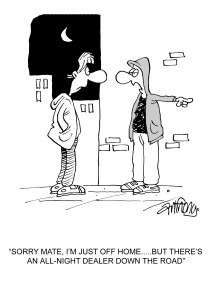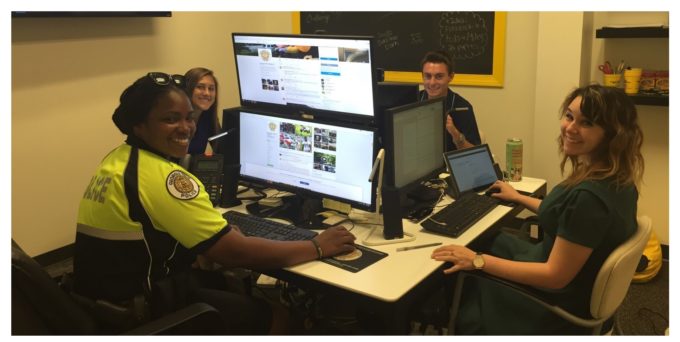Drugs, dealing with the dealers
 This week my officers swooped on a large scale drug supplier, we recovered about 4 kilos of class A & class B drugs, together with several thousand pounds cash. The dealer and his accomplice have both been charged and remanded. The week before that the courts granted an order taking £56,000 off another dealer and a further order setting out a repayment order of over £800,000 against him.
This week my officers swooped on a large scale drug supplier, we recovered about 4 kilos of class A & class B drugs, together with several thousand pounds cash. The dealer and his accomplice have both been charged and remanded. The week before that the courts granted an order taking £56,000 off another dealer and a further order setting out a repayment order of over £800,000 against him.
I tweeted the result and got a great response, people seem to enjoy seeing drug dealers locked up. I also got another familiar response, ‘Great result but what about the drug dealers where I live?’ Communities see people dealing drugs outside their houses every day, and understandably get frustrated when they don’t see the police taking action. As somebody who has run a drugs job or two, I thought I might set out some of the issues that we have to address when we are dealing with the dealers.
Firstly, and perhaps most obviously, we have to prove that they have actually dealt some drugs, or intend to deal them. This is not as easy as you might assume. People caught with relatively large quantities of drugs will often claim they are for personal use, but as they are regular users they have ‘bought in bulk.’ Although this might seem ridiculous to normal people, you need to bear in mind that we have to prove everything to a court ‘beyond all reasonable doubt.’ All the prospective dealer has to do is establish that doubt and they know they will get away with a simple possession of drugs charge which carries much lighter punishment. Therefore any dealer worth their salt will only carry small amounts at any one time, going back to their stash to stock up on a regular basis.
So if just finding somebody with quantities of drugs is not enough, we have to use different techniques to prove they are dealing. We will often watch several deals take place, arresting the buyer out of the sight of the dealer, to prove to a court that there is a course of action taking place. As you can imagine this carries quite a large risk of compromise. Dealers will tend to sell drugs in areas they know and where they are comfortable. Police activity in these areas will quickly get reported back to the dealers and they will shut up shop.
When we are told about a dealer, we often execute warrants at their houses. Again this does not always bring success. They do not leave their drugs lying about for us to stumble across, they hide them, and they actually put quite a lot of thought into it. The dealer who we took the £56,ooo at the start of this blog was burying his drugs in an old lady’s back garden which was insecure.
Taking out a good drug dealer often required many hours of painstaking surveillance and gathering of evidence. This is expensive and difficult. It requires the completion of reams of forms to get the authorities and the painstaking compliation of the evidence gathered. Drugs are exchanged in very small packages, and it is not always obvious when a deal has taken place, again the ‘beyond all reasonable doubt’ arguement is applied, we have to prove that our potential dealer is not a raging socialite who often meets up with 200 people a day for around thirty seconds at a time.
There are few things more satisfying than unearthing a dealers stash, knowing that you have the evidence to link them to it. Police officers continue to arrest dealers and enforce the law, but it is not as straightforwards as you might think. I hope this blog has given you an insight into the day to day battle that we have with dealers, and the reasons why it might appear that we aren’t taking action.
It is really important that people work with us. If you suspect somebody is dealing drugs, tell us. You might not see immediate action, but it starts the ball rolling, and is sometimes the little piece of knowledge that we need. We know communities want to help us, they don’t want dealers on their street corners or outside their kids school. The best weapon we have at our disposal is information from the public.
Thanks for reading, let me have your thoughts…
Mark is Superintendent for the West Midlands Police, UK; a police officer for 15 years mainly as a detective. CI Payne was part of the “Police Who Tweet” panel, moderated by Lauri Stevens, at the 140 Characters Conference in London on Nov 17th. Chief Inspector Payne has started his own blog, where this article was also published. He tweets as @CIPayneWMPolice




Pingback: Tweets that mention Social Media & Law Enforcement, Social Media Tools, Social Media Consulting, Drugs, dealing with the dealers | ConnectedCOPS.net -- Topsy.com